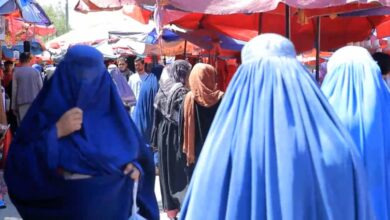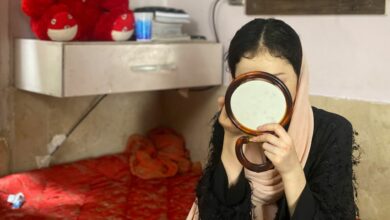
Nazra for Feminist Studies, an Egyptian NGO focused on women's rights, has launched a campaign entitled “Heya wa al-Manasa” (Her and the Bench) aiming to raise awareness of the under-representation of women in the Egyptian judiciary — along with the discriminatory selection procedures that the NGO says underly the problem.
The campaign seeks to protest against the various social and administrative barriers that prevent women from taking key judicial jobs, particularly that of judge and roles leading to that position.
According to Nazra, there are only about 70 women judges in the Egyptian judiciary, making up about 0.5 percent of the overall number. Women judges are kept almost exclusively out of criminal courts and mostly occupy positions within family and administrative courts, as well as the Supreme Constitutional Court.
On the very rare occasion that a female judge is found in a criminal court, she will work on a consultation basis, rather than presiding over a case.
In order to become judges in the Courts of First Degree, the Appeal Courts and Court of Cassation, women must first join the public prosecution. However, female candidates are never successful in applying for such positions.
Where the State Council is concerned, Nazra explains, women are not even hired as assistant delegates, a relatively low position. Even though there have been petitions to allow women to apply for available positions, the matter is often put to a vote, and the ruling is never in favor of female applicants.
Blocking women from career advancement in this way is a violation of their constitutional rights, says Nazra, and a reflection of the ongoing disregard for gender equality within the judiciary. The group says Egypt's judiciary has a history of discriminating against not only women, but against various social groups.
According to an online fact sheet produced by Nazra in support of the campaign, female representation is instrumental to any functional judicial system, especially when it comes to the judiciary’s involvement in writing laws.
Increasing female involvement in all government insitutions, especially parliament, can help push the country in the right direction, says the NGO.
In seeking to shake-up attitudes, particularly within the judiciary itself, Nasra says it will create a dialogue between key bodies, including the National Council for Human rights, the National Council for Women of Egypt, parliament and the judiciary. Among other strategies, the campaign will seek to pressure parliament to reform administrative procedures that permit the judiciary to discriminate against women at the selection stage.
According to Article 11 of Egypt’s current constitution, finalized in 2014, women and men should be subject to equal opportunity within the judiciary and every other government sector, with discrimination against women strictly forbidden.
However, despite such consitutional provisions, females continue to be denied employment in various branches of the judiciary, blocking them in their goal of becoming a judge in key areas, such as criminal law.
According the Nasra fact sheet, female candidates are rejected on the assumption that they will not withstand some of the less pleasant aspects of the job, such as dealing with criminals in close proximity. Citing Egyptian traditions and values that dictate that women should be protected from obscenities, these committees reject female applicants because they feel that the job will demean them as women, says the NGO.
The judicial selection committees also tend to assume that women cannot make tough decisions, such as sentencing someone to lifetime imprisonment, while women cannot be trusted not to sympathize with criminals.
More than 11 Arab countries that have allowed women judges, and there are more than 10,000 female judges in those countries today. Morocco was the first, where a woman was appointed in 1961, while Sudan had its first woman judge in 1965. In the 1970s, many other Arab countries joined their ranks, while Egypt appointed its first woman judge in 2003.




